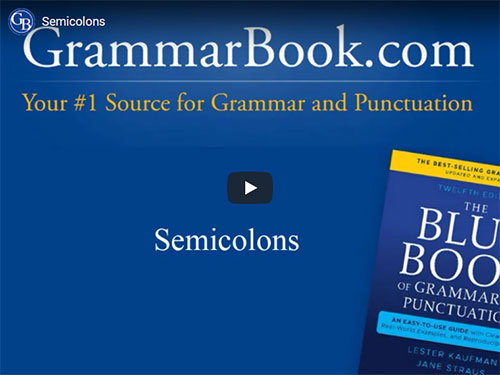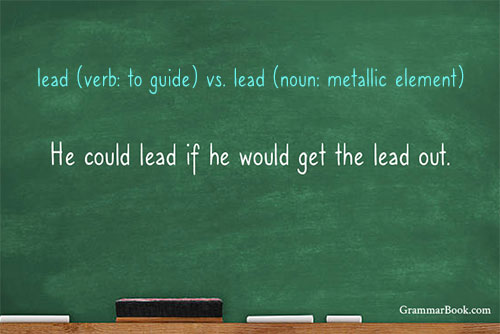|
A verb conjugation in English is a list of all of a verb’s forms in written and spoken expression. Those forms represent a verb’s person, tense, number, voice, and mood.
To illustrate verb conjugation, we will focus on the verb to touch, which is the infinitive of the verb. The principle parts of to touch are touch and touched.
English Verb Conjugation: Person and Number
Person concerns the performer or performers of an action. It has three categories (first, second, and third person) and two numbers (singular or plural). The singular and plural forms of the three persons make six total persons.
| first person singular |
I |
first person plural |
we |
| second person singular |
you |
second person plural |
you |
| third person singular |
he, she, it |
third person plural |
they |
English Verb Conjugation: Tense
Tense identifies the timing of the verb person’s action: in the past, the present, or the future. For this discussion, we will focus on the simple verb tenses.
| Simple Present Tense |
| first person singular |
I touch |
first person plural |
we touch |
| second person singular |
you touch |
second person plural |
you touch |
| third person singular |
he, she, it touches |
third person plural |
they touch |
| Simple Past Tense |
| first person singular |
I touched |
first person plural |
we touched |
| second person singular |
you touched |
second person plural |
you touched |
| third person singular |
he, she, it touched |
third person plural |
they touched |
| Simple Future Tense |
| first person singular |
I will touch |
first person plural |
we will touch |
| second person singular |
you will touch |
second person plural |
you will touch |
| third person singular |
he, she, it will touch |
third person plural |
they will touch |
Regular verbs in English maintain a consistent pattern to communicate tense, as we can see in conjugation of the verb to dance:
| Present Tense |
| first person singular |
I dance |
first person plural |
we dance |
| second person singular |
you dance |
second person plural |
you dance |
| third person singular |
he, she, it dances |
third person plural |
they dance |
| Past Tense |
| first person singular |
I danced |
first person plural |
we danced |
| second person singular |
you danced |
second person plural |
you danced |
| third person singular |
he, she, it danced |
third person plural |
they danced |
| Future Tense |
| first person singular |
I will dance |
first person plural |
we will dance |
| second person singular |
you will dance |
second person plural |
you will dance |
| third person singular |
he, she, it will dance |
third person plural |
they will dance |
(For a closer look at how irregular verbs are treated in English, review our discussion Staying Regular with Irregular Verbs.)
English Verb Conjugation: Voice
Voice in English verb conjugation establishes whether an action is active or passive. In the active voice, the subject performs the verb. In the passive voice, either the subject is unstated or unknown or the object of an action becomes the focus.
The passive voice is formed with the proper form of to be and the past participle of the verb.
Example active voice: I touched the statue. (Subject performs the action.)
Example passive voice: The statue was touched. (Subject is unstated or unknown.)
Example passive voice: The statue was touched by me. (Object is the focus.) |
So far, all of our conjugation of to touch has been in the active voice. Here is the passive conjugation of to touch by person, number, and tense.
| Present Tense |
| first person singular |
I am touched |
first person plural |
we are touched |
| second person singular |
you are touched |
second person plural |
you are touched |
| third person singular |
he, she, it is touched |
third person plural |
they are touched |
| Past Tense |
| first person singular |
I was touched |
first person plural |
we were touched |
| second person singular |
you were touched |
second person plural |
you were touched |
| third person singular |
he, she, it was touched |
third person plural |
they were touched |
| Future Tense |
| first person singular |
I will be touched |
first person plural |
we will be touched |
| second person singular |
you will be touched |
second person plural |
you will be touched |
| third person singular |
he, she, it will be touched |
third person plural |
they will be touched |
English Verb Conjugation: Mood
The mood of an English verb reflects the speaker's manner or attitude in what is being expressed. In verb conjugation, the main moods are the indicative, the subjunctive, and the imperative.
The indicative mood represents statements of fact and information delivery: I touched the statue. We are simply telling someone what we did.
The imperative mood signals a direct request or a command to a particular person: Touch the statue. We are not stating a fact or sharing information but rather issuing a directive to someone. The imperative mood often includes an understood but omitted "you" as the subject: (You) touch the statue.
We use the subjunctive mood to convey a wish, demand, suggestion, or recommendation. We also use it for something that is contrary to fact or otherwise impossible.
The subjunctive mood prompts an alteration of proper verb conjugation. Compare the following sentences.
He touches the statue.
I demand that he touch the statue. |
The first sentence states a fact, making it indicative with standard conjugation of the third-person present tense. In the second sentence, the subject is making a strong request, implicating that the subjunctive mood will follow. This is reflected by changing the third-person singular present from he touches to he touch.
Related Topic
Clarifying the Conditional Tense
Staying Regular with Irregular Verbs
Present Perfect Tense
|





